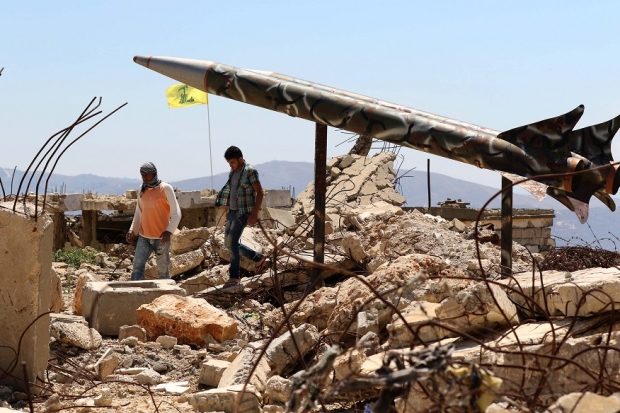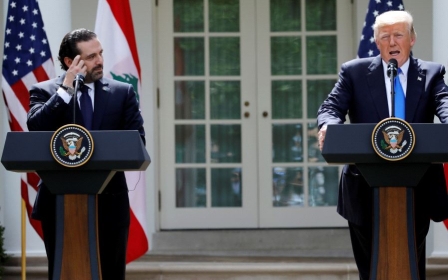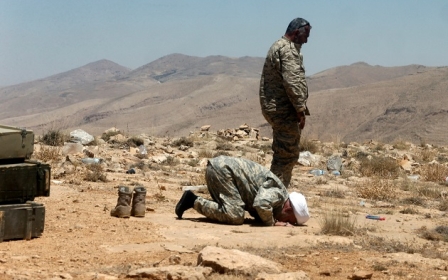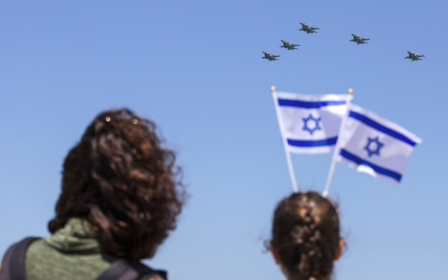The next war between Israel and Hezbollah: The conflict hacks love to talk up
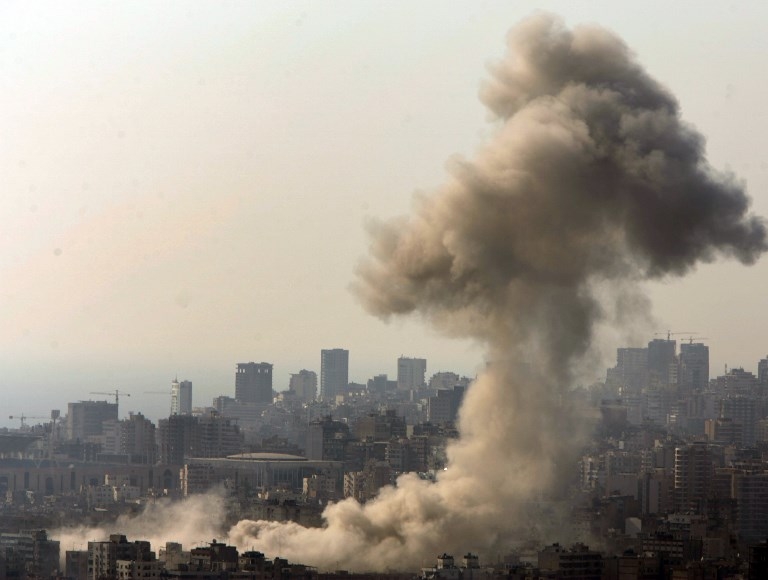
The media is a funny business. Good news is not news, they say, and death sells. No wonder hacks love their wars. So much so that whenever there is no actual war to report on, they tend to talk up the next one coming.
That is certainly the case for the festering conflict between Israel and Hezbollah. Although the last serious flare-up dates back to 2006 and Lebanon’s southern border has been relatively quiet since, there has been a flurry of articles of late suggesting the next round of fighting lies around the corner.
It seems foreign reporters face no problem whatsoever in finding Hezbollah fighters willing to talk... Hezbollah seems to be an organisation that is leaking like a sieve
The Jerusalem Post recently quoted former general and defence minister Moshe Yaalon saying that "every Lebanese [person] will suffer from the next war because all infrastructure will be destroyed". You wonder what is new, as Israel did exactly that in 2006.
One day later, the same newspaper ran a story about the Israeli army being forced to take military action against Hezbollah (and Iran) as a result of the current stalemate in Syria.
On the other side of the divide, Newsweek on 3 July headlined with “The Next Middle East War?” and the racy subheading: “Hezbollah may risk everything in all-out fight with Israel.”
Written by Sulome Anderson, whose journalist father Terry was taken hostage by Shia militias during the Lebanese civil war, the article is hardly the first attempt to sketch the potential conflict from Hezbollah's point of view. Anderson, like her predecessors, follows a familiar pattern with familiar flaws.
The problem with Hezbollah is that it is a highly hierarchical and secretive organisation, especially when it concerns its military wing. This should hardly come as a surprise, given the fact that many countries regard Hezbollah, or part of it, as a terrorist organisation.
Anonymous boasters
Remarkably, however, it seems foreign reporters face no problem whatsoever in finding Hezbollah fighters willing to talk. Without exception, the latter start by saying they are not authorised to speak to the press, yet are willing to do so under a pseudonym or anonymously.
Next thing you know: they happily talk about just about everything they are not supposed to talk about and Hezbollah seems to be an organisation that is leaking like a sieve.
In her Newsweek article, Anderson introduces two Hezbollah fighters, two commanders, a division leader and an official who, anonymously, go on to make the most extraordinary claims.
“What the world saw from Hezbollah in 2006 is 3 percent of what we are now,” says fighter “Mustafa”. “Hezbollah now has weapons that we never dreamed of,” claims a “commander” in south Beirut.
Are the Hezbollah representatives in the article really what they say they are? And, if they are, what are their claims worth? Aren’t they merely boasting?
“Imagine that in one hour, we can fire 4,000 missiles,” says his colleague, adding that Hezbollah can hit Israel’s gas infrastructure and possesses weaponised drones and bikes, as well as anti-aircraft missiles.
Note that in the article’s original version, Anderson confused Burkan 1 Missiles with the more modest Burkan Dwarf Missiles. It was one of many mistakes pointed out by Ali Kourani, who forced Newsweek to publish a lengthy rectification.
Yet, some of the most outrageous claims are still there. “Everybody is going to fight, women and children will pick up knives,” one of the “commanders” asserts. This is somehow repeated by a “Hezbollah official” saying: “It’s part of our culture to teach our children and children’s children to fight.”
This all quite handily plays into the Israeli stereotype of the bloodthirsty Arab who cheerfully sacrifices his own children for the good cause. Yet, Hezbollah is not exactly known for sending children to the frontline. In fact, this kind of language does not even sound like Hezbollah.
Newsweek’s spectrum of colourful citations about secret arms, women, children and knives, raises more questions than it answers. Are the Hezbollah representatives in the article really what they say they are? And, if they are, what are their claims worth? Aren’t they merely boasting? Could it be that the cited “commanders” command very little and know very little?”
As said, Anderson is hardly the only western reporter having no trouble finding Hezbollah “commanders” willing to talk. For example, on 23 March, The Nation asked itself: “Are Hezbollah and Israel Preparing for War?”
Here we meet Hezbollah Commander Samir, “who declines to use his real name because he is not authorized to speak to the press.” And yet he is happy to share that: “We’ve got heavy long-range missiles, directly from the Russians, that can hit anywhere in Israel.”
“We’ve got heavy long-range missiles, directly from the Russians, that can hit anywhere in Israel”
- Hezbollah 'commander' quoted in The Nation
Samir denied requests to see the weapons, “citing security concerns”. According to him, war with Israel was not on the agenda just yet. But he was convinced there will be another round of conflict at some point.
Still, war will come
Now, don’t get me wrong. I agree. I don’t think there is anyone in his right mind who does not believe there will be renewed hostilities between Israel and Hezbollah at some point.
For several reasons. One, Israel will feel it has unfinished business with its foe on the northern border. Two, the current standoff in Syria has drawn Iran too close to Israel’s borders. And three, if there ever is an American-led assault on Iran, Hezbollah needs to be neutralised first.
I just wonder, especially when it comes to Hezbollah’s arms and the war’s possible starting date, if a half-baked analysis based on anonymous quotes such as Newsweek’s or The Nation’s offers anything more than a juicy headline.
According to the – anonymous – Hezbollah official cited in Newsweek, the war will start before summer is over. Well, it may or may not. Let’s hope not. But, as a warning, allow me to remind you of the run-up to the 2006 war.
Then, like today, most people on both sides of the border were aware that war would be coming at some point. Israel had ended its military occupation of south Lebanon, but a score of unsettled issues with Hezbollah remained.
And, like today, there was the threat of American adventurism in Iran looming in the background.
World Cup triple?
Still, the outbreak of the war took everyone by complete surprise. Lebanon was still recovering from a month of football frenzy.
On 9 July, Italy beat France in the World Cup final. Three days later, following a Hezbollah border raid, the all-out war started.
In terms of Hezbollah’s military capabilities, the war offered some surprises too. Most people knew Hezbollah had dug themselves in, yet were stunned by the extent of the tunnel defences. Hardly anyone, least of all the Israelis, had foreseen the possession of Hezbollah’s much improved anti-tank and anti-ship missiles.
The brutal war lasted 34 days. Israel failed to break Hezbollah’s resistance. Yet, the “victory” came with a hefty price tag. Over 1,500 people were killed, including 121 Israeli soldiers, an estimated 500 Hezbollah fighters and nearly 1,200 Lebanese civilians, while Lebanon’s infrastructure was left in tatters.
The joke in 2006 was that Italy was to blame. After all, every time Italy became world champion, Israel invaded Lebanon. It happened in 1982. And it happened in 2006.
While no one knows if the next round of fighting between Israel and Hezbollah will start before the end of summer, one thing is certain: Lebanon will become very nervous indeed if Italy were to be crowned FIFA world champions in Russia in 2018.
- Peter Speetjens is a Dutch journalist who lived in Lebanon for 20 years, regularly travels to India and has a special interest in how 19th-century writers helped shape our conceptions of the world today.
The views expressed in this article belong to the author and do not necessarily reflect the editorial policy of Middle East Eye.
Photo: Smoke billows on 6 August 2006 following Israeli bombardment on the southern suburbs of Beirut, a stronghold of Hezbollah (AFP)
This article is available in French on Middle East Eye French edition.
New MEE newsletter: Jerusalem Dispatch
Sign up to get the latest insights and analysis on Israel-Palestine, alongside Turkey Unpacked and other MEE newsletters
Middle East Eye delivers independent and unrivalled coverage and analysis of the Middle East, North Africa and beyond. To learn more about republishing this content and the associated fees, please fill out this form. More about MEE can be found here.



